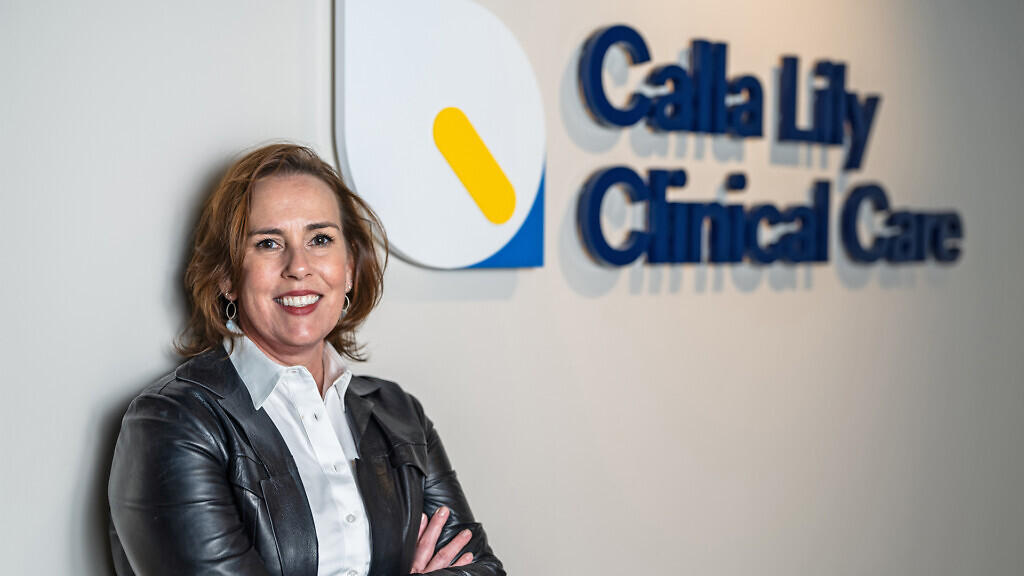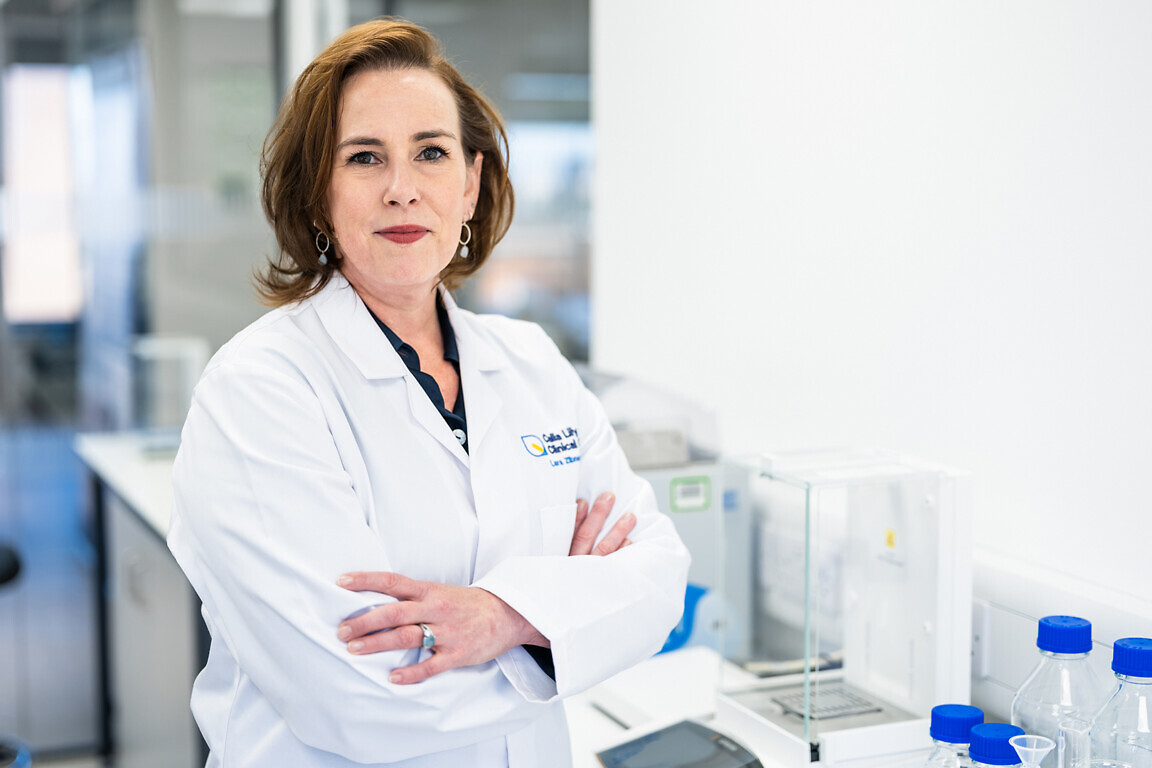The paediatrician, educator, author and founder talks about the future of female-led innovation and investors’ attitudes to opportunities within women’s health.
“From the emergency room to the board room”, Dr Lara Zibners’ journey from paediatric emergency medicine to vital Femtech founder has been nothing short of inspiring.
However, despite being recognised as a critical voice, an educator, author, academic and innovator, she, like many other investors who focus on women’s health, struggles to be taken seriously by mainstream backers.
Talking to Healthcare Today from HLTH Europe in Amsterdam, Lara discusses the future of female founders and the transformative momentum in women’s health innovation…
Your credentials as an innovator in women’s health are clearly confirmed as the co-founder and chair of Calla Lily Clinical Care…
Yes, so it all began as a consumer period care product. Calla Lily brought to market a new kind of liner-tampon hybrid, named by TIME Magazine as one of its 100 Best Invention of 2020. It got a lot of traction and brought it to market, but couldn’t get enough momentum to make it sustainable… COVID didn’t help!
I was an investor and advisor to that company. My co-founder, Thang Vo-Ta, and I were talking in 2021 and he mentioned that UK guidance had changed to give every woman at risk of miscarriage up to 80 days of vaginal progesterone. I said, “Thang, we’ve never talked about this, but I did seven rounds of IVF that all failed spectacularly.”
One thing I can’t do in my life is get pregnant – I now have three kids, two adoptions and a surrogate. After my first IVF round failed, my doctor suggested vaginal progesterone, but it leaked horribly, so she said, “You’re American and a doctor, let’s do it American style…” That meant injections. Progesterone injections are cruel, using thick oil, they are intramuscular and painful. I’d have to heat the vial in my bra for 30 minutes to make it flow easier, then stand in front of the mirror, jamming it into my hip. It was the worst part of IVF.
In the US, the standard is a mix of injections and vaginal progesterone, but globally, it’s mostly vaginal. I told Thang, “If you ever go down the drug-delivery path, that’s something I care about.”
Fast-forward to 2022: I’m halfway through my MBA when Thang calls and says Calla Lily is out of runway. [UK high street chain] Boots had refused to stock the product, and without retail pharmacy placement, traction was impossible.
So, we pivoted to healthcare, leveraging our drug-delivery patents. Thang, a Vietnamese man, had faced resistance pitching tampons to women investors. I joined as co-founder and ‘a doctor with a vagina’ and we restructured.
Thang pulled in incredible talent, including our chief product officer, who automated the Philips Avent baby bottle and is a principal scientist with 55 patents. Now, we’re a platform starting with progesterone, which is a huge, proven market but with plans for broader vaginal drug delivery.
You’ve recently been backed by an additional £1.1 million in funding. Is this indicative of increased investor confidence in the Femtech innovation landscape?
The National Institute for Health and Care Research (NIHR) granted us £1.1 million, but government funding moves slowly. We found out about the funding in February 2024, and the press announcement came over a year later!
Unfortunately, we’re on a losing streak right now. We’ve recently had 12 rejections in a row because grant success depends on who’s reviewing. It’s exhausting to be honest, I’m out here slapping the air, hoping to hit someone with money.
It helps that our team is brilliant, including an ex-Goldman Sachs investment banker and super-smart product engineers; we hold seven PhDs between the team. But without funding, execution is stalled.
“The investment world is dominated by men who don’t want to say ‘vagina’ at their Monday morning meeting.”
As Kearney’s Paula Bellostas Muguerza highlighted in an interview with Healthcare Today, why is such research so chronically underfunded when women make up 51% of the population?
I think it’s multifactorial. First, women were excluded from research for years because of a failure to recognise biological sex differences. We are not 70-kilo white dudes, and our bodies react differently.
Then there’s the fact that the investment world is dominated by men who don’t want to say “vagina” at their Monday morning meeting. Marina Gerner wrote that viral article about investors’ problems with vaginas, it’s silly but real. Nowhere else in investing do you hear the phrase “I’ll ask my wife”, except in women’s health. They should see a market opportunity, not treat it like a charity case.
Then there’s timing: after 2020, Initial public offerings (IPOs) dried up, funding pipelines froze, and valuations got messy.
We are now seeing more women investors enter the space, but some are what I’ll call ‘mean girls’. They’re the ones that are half my age, and yet somehow, make me feel insecure. I’m a 53-year-old woman with a doctorate and two master’s degrees; I have no problem telling men to suck it. But I get around those girls and it takes me back to being a young and insecure chemistry nerd.
There is a power play between investors and startups, and I think there are a lot of investors out there who enjoy lording it over others. I don’t say this to get people upset, but because we’re all desperate for funding, there’s a tendency to make people almost grovel.
Good founders flip that dynamic with potential investors by saying, “You get 30 minutes of my time!”

Considering the ongoing difficulties in securing funding, how can female founders access non-dilutive funding, such as grants or partnerships, in a tight venture capital market?
The UK is actually great for this. We’ve secured Innovate UK grants and explored non-dilutive loans. But you have to be relentless. I once spent three hours on a grant application before my co-founder pointed out we weren’t eligible; you have to read the fine print and get creative.
The key is networking. I co-host events with other founders to share investor contacts. Programmes like the Global Business Innovation Programme took us to Boston and New York, which opened doors.
At the end of the day, though, startup karma matters. If you help others and share resources, opportunities come back.
Does Femtech still struggle to be seen as mainstream healthcare as opposed to niche wellness?
Oh, absolutely. The minute women’s health gets labelled a trillion-dollar market, the bad actors show up. Look at the vaginal microbiome space, it’s the new AI. My husband’s shampoo now claims to protect his microbiome!
There’s so much we don’t understand, but that doesn’t stop companies from selling pineapple gummies to make you smell better. It’s snake oil.
Investors prefer digital health because it’s low-burn, but they lump serious biotech like ours with Gwyneth Paltrow-esque Goop wellness. There’s also this patronising idea that women should only solve women’s problems. I was on a panel where someone said they only back founders solving personal experiences, as if men can’t care about miscarriage or women can’t found AI companies.
Serious tech scares investors because it’s capital-intensive. We have an incredible team that needs to eat, but we’re not chasing quick wins. Every decision comes down to: “We’re not that kind of company”.
Thang and I have shut down shortcuts that compromise ethics. That’s why our no jerks policy rules out most institutional investors; we’ll take funding, but not at the cost of our mission.



